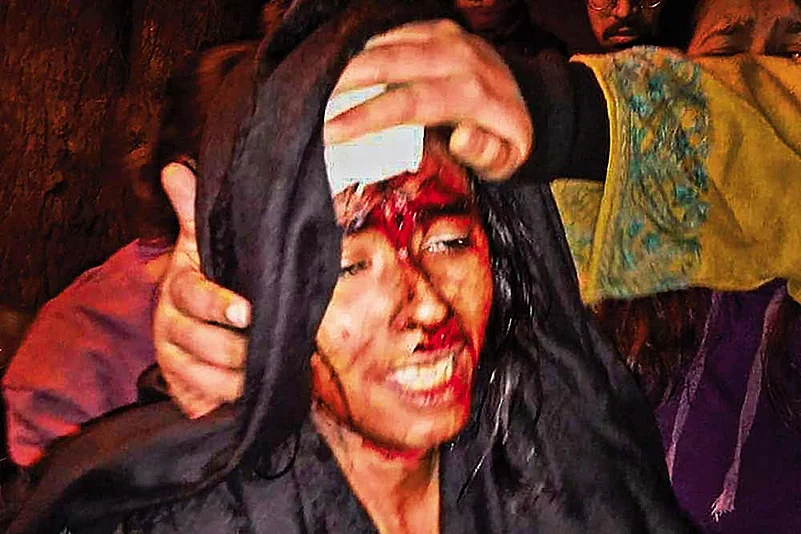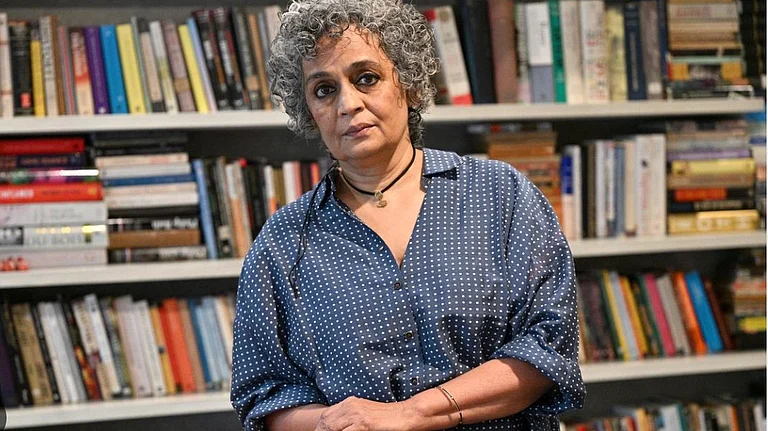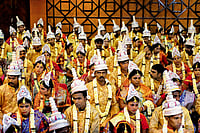The armed mob attack inside Jawaharlal Nehru University on January 5, 2020, has been four years in the making. Ever since the orchestrated events of February 2016, within weeks of the current vice chancellor taking charge, JNU has faced assault after assault. The first phase saw charges of being anti-national made on the basis of doctored videos of an event around what was perceived as the unjust hanging of Afzal Guru. The slogans supposedly shouted at that event by masked men (the first entry of this species into JNU), gave JNU its honorific, ‘tukde tukde gang’. For over a year after that, students and faculty faced police complaints, arrests for sedition, physical assaults outside campus and mobs gathering at its gates with aggressive slogans.
That pot was shifted to simmer on the back-burner, partly thanks to the Delhi government refusing to go beyond the law on the sedition cases against JNU students. But there was also a strong pushback in the public domain by critical voices. Meanwhile, the bureaucratic sabotage of JNU ensued. By violating statutes to concentrate power in the hands of the VC, who filled the Academic Council with his invitees while removing non-compliant faculty members, several measures were taken to reduce and control student intake. Massive seat cuts citing a UGC regulation led to zero intake in most centres. The entrance exam was changed from the traditional handwritten mix of essay-type and objective questions, held in examination centres all over India in all languages, to online multiple-choice questions. Thus, students who attempt the entrance exam need to be conversant with computers and English.
Simultaneously, the composition of the faculty was targeted. Dissenting Chairs and deans were removed and posts were rapidly filled, violating all norms. Every faculty appointment under this VC has been of known RSS associates with scant academic credentials. Many were put in charge of student hostels, removing wardens who held the posts according to JNU rules. Compliant faculty were placed in every administrative position and committee, often holding multiple posts, violating seniority and other principles of democratic functioning. Throughout the 70-odd days of students’ struggle against the inordinately steep fee hike, the filling of faculty posts has continued, including on the day after the bloody attack on faculty and students.
This section of the faculty attended a JNU Teachers’ Association (JNUTA) meeting before splitting to form their own group recently. In a speech, one of them pointedly named a Muslim faculty member as “showing more interest in Iran than in JNU”. Another physically attacked a Dalit faculty member during the meeting and had to be restrained. Some of them are visible in videos of physical attacks on students protesting the fee hike, on the day preceding the mob attack. One of them was present in the mob armed with lathis outside JNU gate on the night of January 5, shouting violent slogans like ‘desh ke gaddaron ko, goli maro saalon ko’ and physically attacking JNU supporters who had begun to gather there. Police, present in large numbers, made no effort to restrain them and even helpfully switched off street lights for a couple of hours. All this happened in full media glare.
The current moment of this extended attack arises from the arbitrary raising of fees to such an extent that almost half of the current students would be unable to continue in JNU. None of the norms to decide such changes have been followed. The VC has refused to meet faculty or students. As the determined students launched a struggle against this effective privatising of a public university, classes and exams were boycotted and buildings were shut down. They took out massive marches in the city and were brutally lathicharged. The ministry of human resource development stepped in and tried to end the impasse, but the VC did not meet the high-level committee. Evidently, he has backing at the highest level.
In an effort to continue the charade of “a handful of students” disrupting normal functioning, the JNU administration ordered examinations to be held by WhatsApp. A few compliant faculty members even sent question papers, but no student participated in this farce. With the previous semester not having been brought to a close, the JNU administration started the process of registration for the “new” semester in January. Students decided to boycott registration and this brings us to the most recent crisis.
The administration claims that masked students cut internet wires to disrupt registration; the students’ union denies this. On January 4, JNU security, ABVP students and RSS faculty started physically attacking students blockading school buildings. An important factor here is the new security agency with ex-Army links. Unlike previous security personnel, who acted professionally, clearly the brief to this company is to treat JNU as enemy territory. Students have often faced verbal and physical abuse from them.
The JNUTA held a peace assembly on January 5 to protest the violence of the previous day. A masked group throwing stones and wielding iron rods and sticks attacked it. Many teachers were severely injured. Meanwhile news had spread of violent attacks in and around hostels. This has been by now extensively documented in multiple media. It is also established that RSS affiliates were violent inside and outside the campus; and systematically targeted Left faculty and student (as well as Kashmiri and Muslim students), both in their bodies and properties—cars, homes and hostel rooms were vandalised with practised speed. The infamous IT cell of the BJP—aided by pliant sections of the media and ably assisted by the VC—sought to spread the narrative of a clash between student groups and even of a Left-led assault on ABVP. Videos and images were circulated, claiming Left activists attacked ABVP, but these have been exposed as lies. Even ABVP office-bearers have now accepted that some of the masked people are ABVP members, but claim they were armed in self-defence. The sudden springing up of a Hindu outfit claiming to have carried out the violence seems to be an attempt to rescue the ABVP, but it contradicts the VC’s statement issued 48 hours after, accusing Left groups of violently trying to stop students from registering for the new semester.
This attack, carried out in collusion between the JNU administration, police and RSS-linked organisations, has nothing to do with the students’ struggle against fee hike. ‘Desh ke gaddar’ is not an abuse coming from students eager to register for the new semester. Its roots lie in the home minister’s call for the ‘tukde tukde gang’ to be taught a lesson in response to the nation-wide mass protests against the CAA. Any doubt about this is dispelled by the rector Chintamani Mahapatra proudly claiming it is a ‘surgical strike’.
The violence in JNU reflects in microcosm the use of state power by the RSS to build a Hindu Rashtra. There are clearly discernible patterns that resonate with Gujarat in 2002 and now Uttar Pradesh as well as with the attacks on other universities; the collusion between BJP governments, police and local criminals; uniformed police being accompanied by people in plainclothes, some of whom are masked; and the targeting of Muslims.
The current regime has a two-fold agenda of establishing a Hindu Rashtra and promoting crony capitalism. The first is being pursued through the Citizenship Amendment Act, the National Population Register and the National Register of Citizens, each of which will formally disenfranchise most Muslims, but will also affect all poor and marginalised people who do not possess the stipulated documents. The second includes the handing over of natural resources to corporations, violent dispossession of tribal and farming communities on those lands, and privatisation of all public institutions, especially universities.
Opposing the first are #AntiNationals, the second, #UrbanNaxals. The mob attack on JNU is meant to deter the massive, militant waves of young people resisting CAA. The “JNU violence” also offers a pretext to postpone Delhi assembly elections, which the election commissioner said is possible. But amid this persistent onslaught, knowing what we are up against is half the battle won.
(The author is a professor at Jawaharlal Nehru University. Views expressed are personal.)






















